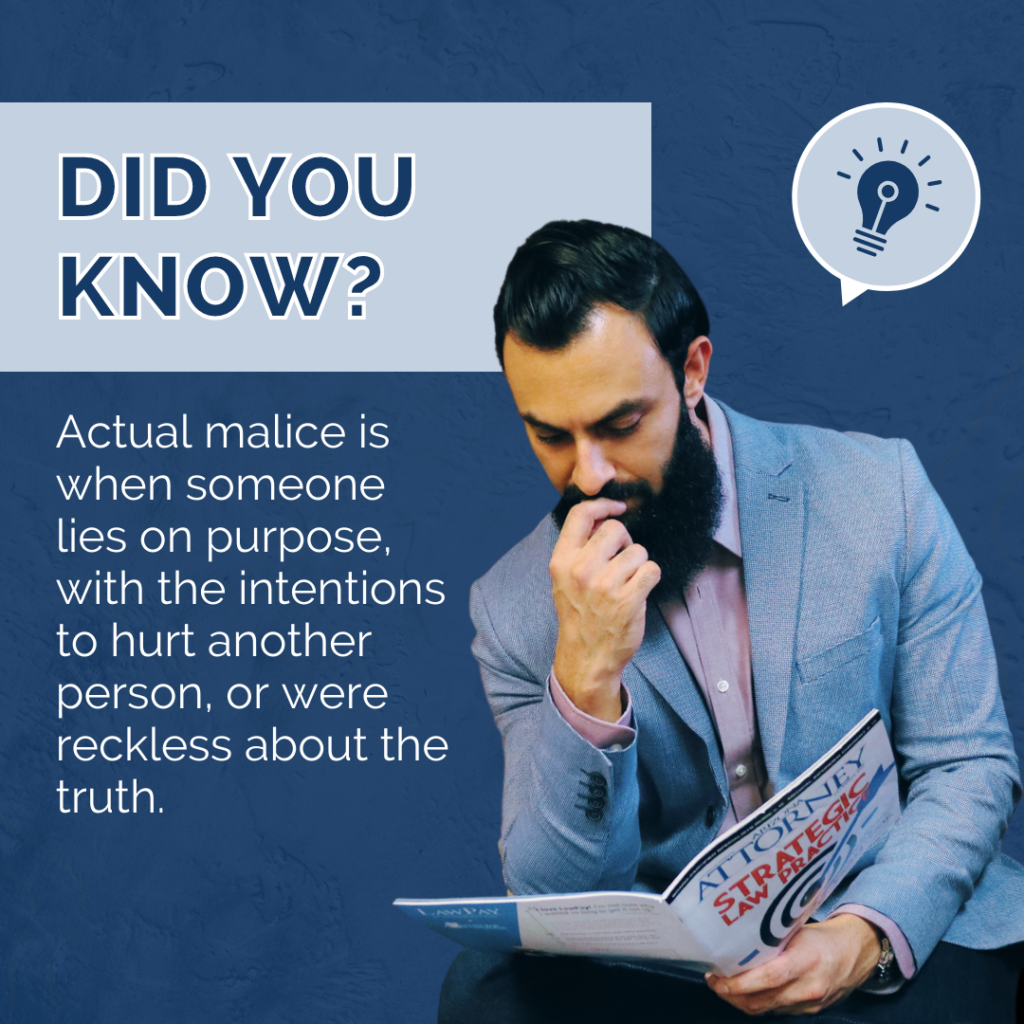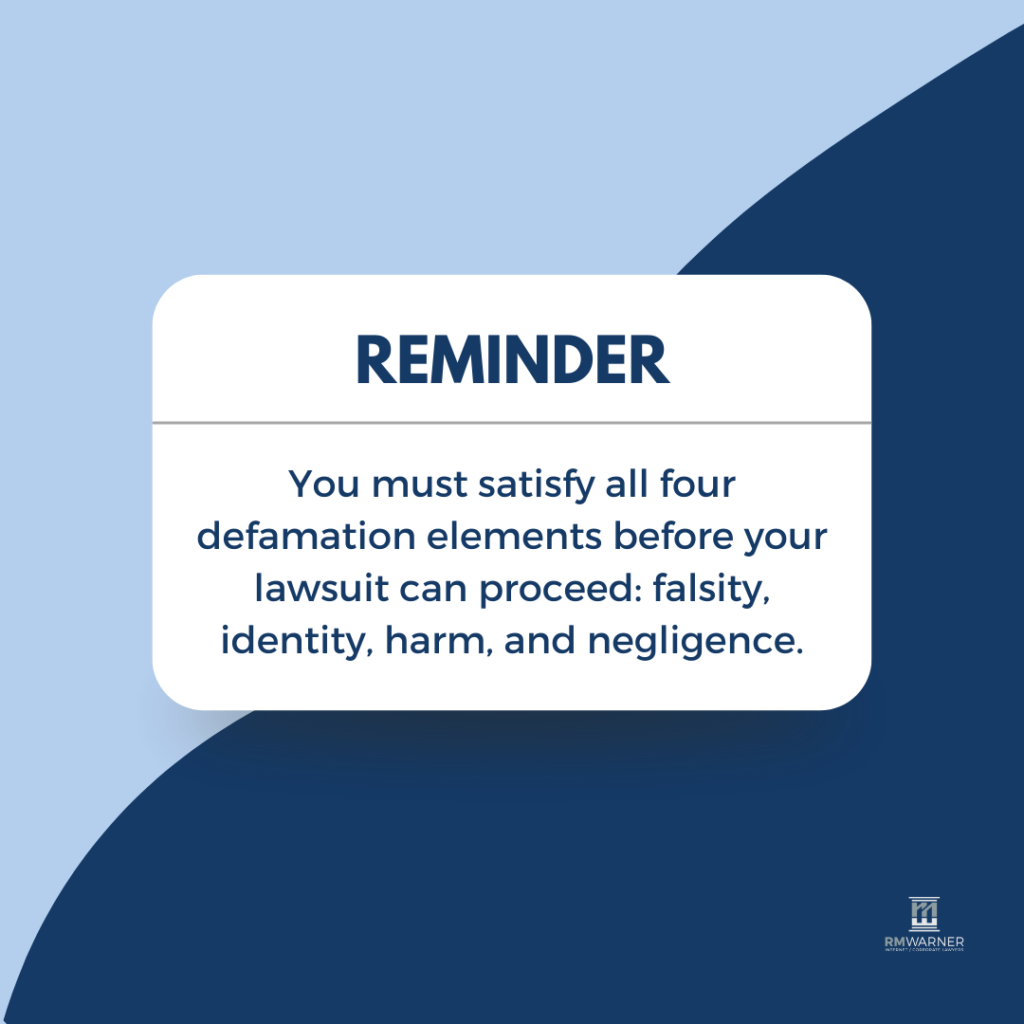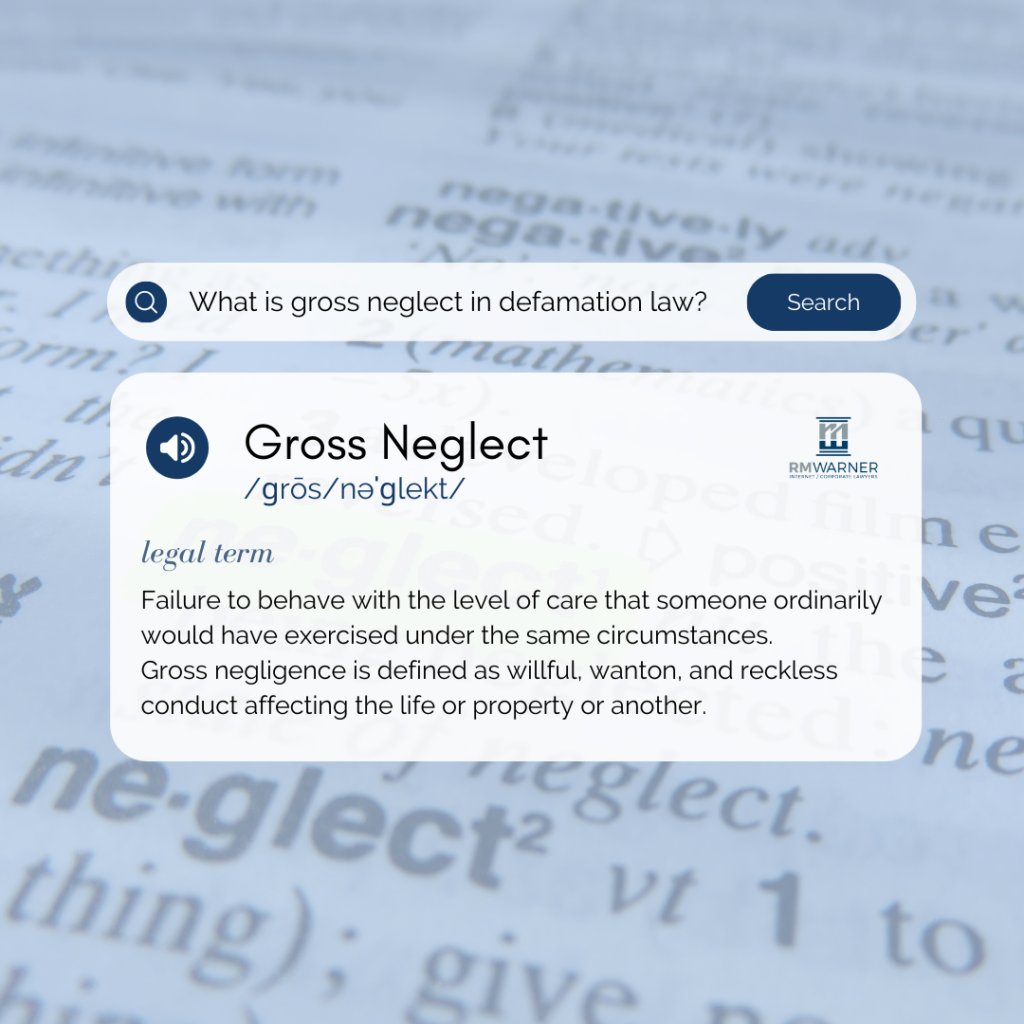Can I Sue for Defamation?
Have you or your company’s reputation been disparaged by a social media post, online review, or Internet troll? If so, you may have the option to seek justice by suing for defamation of character. However, before you jump the gun and think about filing a defamation lawsuit, make sure you have all the facts on your side. So first, ask yourself: can I sue for defamation? and Should I sue for defamation?
To Sue for Defamation, Plaintiffs Must Prove…
The United States has some of the most defendant-friendly defamation laws in the Western world. So, would be defamation plaintiffs need to really scrub their case first. In fact, most libel and slander claimants must satisfy all four defamation elements before the case can even proceed: falsity, identity, harm, and negligence. If plaintiffs are considered public figures, they have even higher standards to meet in order to win a defamation lawsuit. Public figure plaintiffs must show malice — which goes to a defendant’s mental state, and is hard to prove.
Falsity in Defamation
Under U.S. defamation law, the burden of proof is on the plaintiff. That means the defamed party must prove that the defendant publicly stated a false statement of fact that can be proven false. Opinions are not actionable. Whether a statement is a statement of fact versus an opinion is not always clear, and must be carefully reviewed which is why you need an excellent defamation attorney.
In order to help you better understand, we complied some defamation examples.
For instance, if John tweeted to the world that Jim consumes illegal drugs, Jim would need to have proof (perhaps via negative drug test results) to prove John’s statement was false. But if John stated that Jim acts like he’s on illegal drugs, you have a statement of opinion, that’s not capable of being proven true or false. How would a jury evaluate this statement — perhaps a plaintiff in this situation could present expert testimony on how a person on drugs behaves versus a person who is not on drugs (not a good defamation case).
Identification in Defamation
It may seem unnecessary to say, but you’d be surprised at how many judges toss defamation claims because plaintiffs can’t prove the defendant’s statements are about the plaintiff. The best way to prove this would be a statement that specifically identifies a plaintiff by first and last name, publicly. For example, if a defamatory statement was published or broadcast on the radio, television, or social media, and that statement specifically identifies the plaintiff. In order for a defamation claim to survive this test, in cases where the specific identity of the plaintiff is not mentioned, generally the plaintiff must show that people who read or heard the defamatory statement understood it to be about the plaintiff.
For example, if John’s tweet read, “My neighbor John smokes crack and practices medicine. Don’t trust him!” Jim would need to show the court that people understood that the tweet was specifically referencing him by providing proof that Jim is his neighbor and the only John that is also a medical doctor, and therefore, the only person he could be referring to.
Harm in Defamation
Harm is a significant element of slander and libel law. To win, plaintiffs must show that defendants’ statements caused material or reputational injury. For example, John would need to prove that his medical practice lost business because patients believed Jim’s tweet claiming that John smoked crack and therefore found another doctor to trust.
However, some claims are so egregious that they need not prove special damages. These claims would fall under defamation per se, and then go into the proper sub-category of libel per se or slander per se.
Negligence in Defamation
And last but not least, defamation plaintiffs must provide evidence that defendants acted either negligently in making the statement, or with reckless disregard for the truth.
For example, John would need to prove that Jim did not verify his claim that John smoked crack and maybe even had motive to ruin John’s reputation as a doctor.
If the Person isn’t Lying, Tread Carefully
The most important thing to remember about U.S. slander and libel standards is summed up in an old adage: “It isn’t defamation if it’s true.” If defendants support statements with proof, nine times out of ten they’ll win. So, before moving forward with a lawsuit, ask yourself: Is the statement at issue true? If it is, consider pursuing another legal avenue, like public disclosure of private facts.
Can I Sue for Defamation if I am a Public Figure?
It is possible for a public figure to win a defamation lawsuit, but it isn’t easy. Public figures like celebrities or politicians are held to a higher standard because they are in a position that attracts and sometimes even demands public scrutiny. Consider a person like Kim Kardashian, she thrust herself into the spotlight by starring in a reality television show. Therefore, she expects to be publicized and scrutinized because she gave away her right to privacy in exchange for fame. The same goes for someone who runs for public office. Those who do understand that they will lose privacy and attract more public attention when they sign up.
However, if you’re a public figure, you should consider the Streisand Effect before moving forward with a lawsuit.

To Sue for Defamation, Public Figure Plaintiffs Must Prove:
Public figures need to prove everything a regular plaintiff must prove to win a defamation lawsuit:
Prove the defendant published or broadcast the statement;
Prove that the statement is false;
Prove the statement caused harm;
Demonstrate that the defendants did not verify their claims.
PLUS: Prove the defendant acted with legal malice.
What is Legal Malice?
Legal malice means that the defendant made the defamatory statement, knowing that it was false or acting with reckless disregard for the truth. The plaintiff must prove that the defendant was aware that the information being published was false, or suspected it to be false, but published it anyways. Oftentimes, a court will seek evidence regarding the defendant’s state of mind at the time the statement was made and even evaluate the steps the defendant took to research and fact check the statement in question.
To learn more about Legal Malice or Actual Malice in a defamation lawsuit, read our blog: What is Actual Malice In A Defamation Lawsuit?
.
Contact an RM Warner Law Defamation Lawyer Today
If you are a victim of Internet defamation, contact the experienced attorneys at RM Warner Law. We have helped restore the reputations of countless victims of Internet defamation so get in contact today.







1 Comment
Leave your reply.